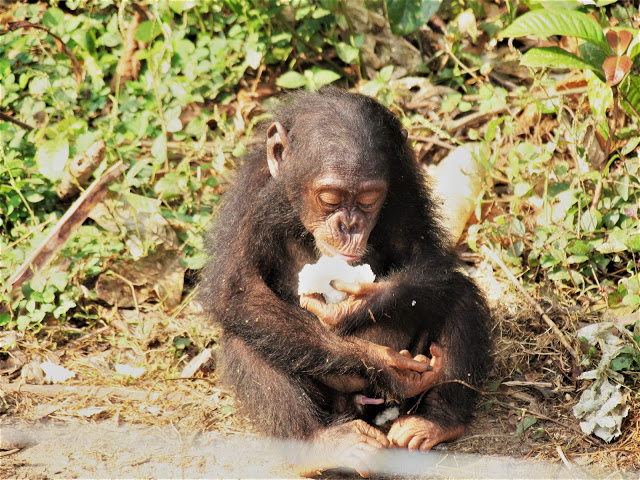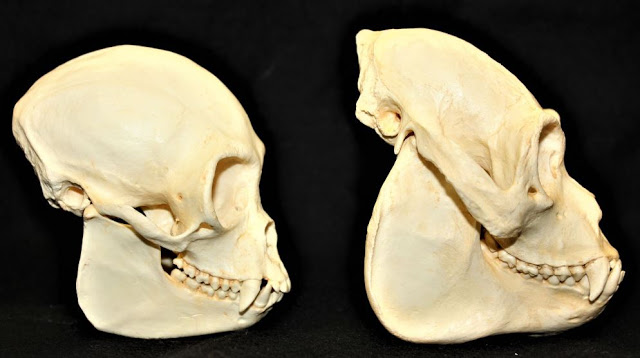

| Online: | |
| Visits: | |
| Stories: |

| Story Views | |
| Now: | |
| Last Hour: | |
| Last 24 Hours: | |
| Total: | |
Why Are Primates Big-Brained? Food for Thought
The findings, which appear in the journal Nature Ecology and Evolution, reinforce the notion that both human and non-human primate brain evolution may be driven by differences in feeding rather than in socialization.
“Are humans and other primates big-brained because of social pressures and the need to think about and track our social relationships, as some have argued?” asks James Higham, an assistant professor in NYU’s Department of Anthropology and a co-author of the new analysis. “This has come to be the prevailing view, but our findings do not support it—in fact, our research points to other factors, namely diet.”
Brain size in primates is predicted by diet, an analysis by a team of NYU anthropologists indicates. Above, a chimpanzee eating fruit.
Credit: James Higham
The social brain hypothesis sees social complexity as the primary driver of primate cognitive complexity, suggesting that social pressures ultimately led to the evolution of the large human brain. While some studies have shown positive relationships between relative brain size and group size, other studies which examined the effects of different social or mating systems have revealed highly conflicting results, raising questions about the strength of the social brain hypothesis.
Their results showed that brain size is predicted by diet rather than by the various measures of sociality—after controlling for body size and phylogeny. Notably, frugivores and frugivore/folivores exhibit significantly larger brains than folivores and, to a lesser extent, omnivores show significantly larger brains than folivores.
The researchers caution that the results do not reveal an association between brain size and fruit or protein consumption on a within-species level; rather, they note, they are evidence of the cognitive demands required by different species to obtain certain foods.
“Fruit is patchier in space and time in the environment, and the consumption of it often involves extraction from difficult-to-reach-places or protective skins,” observes DeCasien.
“Together, these factors may lead to the need for relatively greater cognitive complexity and flexibility in frugivorous species.”Contacts and sources:
James Devitt
Source: http://www.ineffableisland.com/2017/03/why-are-primates-big-brained-food-for.html



